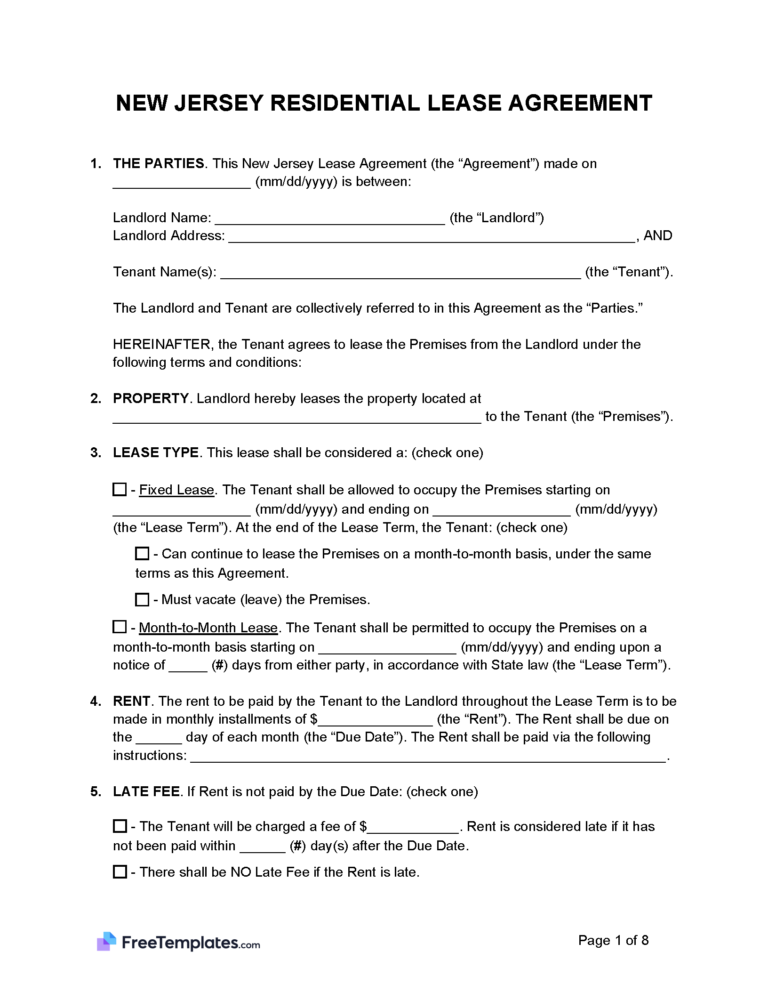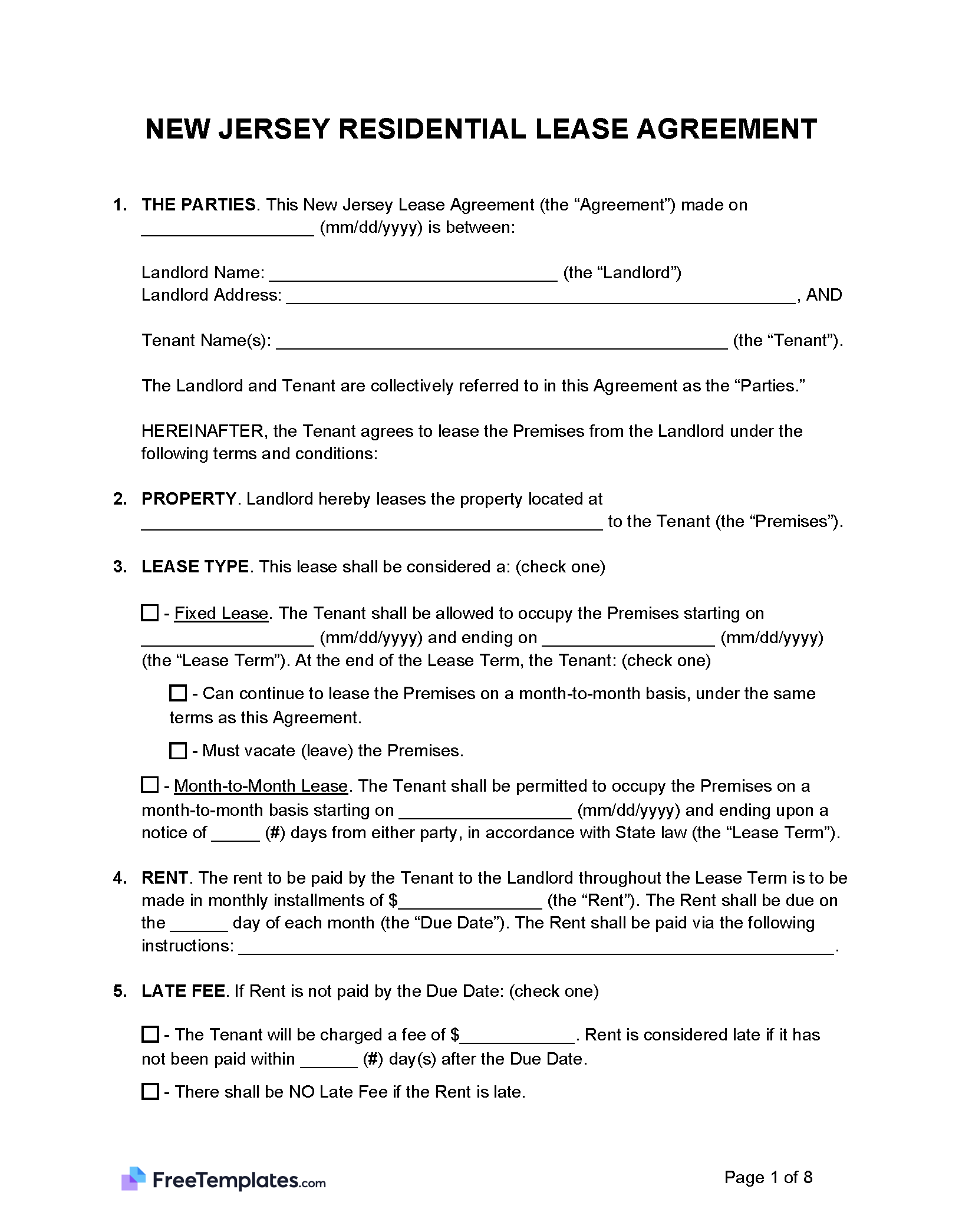By Type (6)
| Standard Lease Agreement – A lease contract between a landlord and a tenant for the rental of a property. |
| Commercial Lease Agreement – A standard lease where the tenant is a business rather than a resident. |
| Month-to-Month Lease Agreement – A 30-day lease that may terminate with advanced notification of either the tenant or landlord. |
| Rent-to-Own Agreement – This is an agreement in which the landlord allows the renter to rent and purchase the property. |
| Roommate Agreement – This is a contract between two individuals renting the same space who need a list of duties and responsibilities. |
| Sublease Agreement – This form is used by tenants who wish to sublease their rental unit to another person. |
Disclosures (4)
Lead-Based Paint Disclosure – Federal law mandates that any rental building built before 1978 may have toxic lead paint on the premises. Therefore, a lead paint disclosure must be provided to the tenant at the start of the lease agreement. (EPA/HUD Fact Sheet)
Truth in Renting Act – This form must be provided by any New Jersey landlord renting a building with more than two units. The form outlines the duties and responsibilities of the tenant and the landlord. (§ 46-8-45)
Flood Zone (conditional) – A disclosure must be given to anyone renting a property in a deemed ‘flood zone.’ (§ 46-8-50)
Window Guard Disclosure – For larger dwellings of three or more units, a tenant with a child ten years or younger may request window guards. (§ 5:10-27.1(c))
Security Deposit
Maximum Amount – The maximum a landlord may charge a tenant for a security deposit is one and a half months’ rent for an initial deposit. Any additional security deposits collected may not exceed 10% of the previous deposit. (§ 46:8-21.2)
Collecting Interest – The landlord must put the security deposit in a bank account or interest-bearing account that is an established inventment company and must be based in New Jersey. (§ 46:8-19(a))
Returning to Tenant – The security deposit must be returned to the tenant within 30 days of the lease end date. (§ 46:8-21.1)
- Itemized List – If the security deposit has been deducted any amount, an itemized list showing any damage or repairs must be provided. (§ 46:8-21.1)
Landlord Access
General Access – If repairs or inspections need to be done to the rental unit, the landlord must give a one-day notice before entering. (§ 5:10-5.1(c))
Emergency Access – In an emergency, the landlord can enter their property for any safety reasons or structural damage. (§ 5:10-5.1(c))
Paying Rent
Grace Period – In New Jersey, there is a 5-day grace period for late rent. If 5 days have passed without payment, the landlord may issue a 30-day notice to quit or pay. (§ 2A:42-6.1)
Maximum Late Fee – There is no specific maximum late fee that a tenant may be charged for late payment.
Returned Checks (NSF) – Writing a bad rent check in New Jersey may result in a maximum $20 fee. (§ 40:5-18(c))
Withholding Rent – A tenant may withhold rent payment only if the rental unit becomes un-habitable. The tenant may address the issues with the unit, make the proper repairs, and deduct the costs from their rent. (New Jersey – Habitability Bulletin (Page 2))
Reasons for Eviction (4)
Non-Payment of Rent – Failure to pay rent on time may result in a 30-day notice to quit or pay. (§ 2A:18-61.2)
Non-Compliance – If the tenant does not comply with the lease agreement, they may be served a one-month notice to quit or comply. (§§ 2A:18-61.2(b))
Lockouts – No tenant shall be locked out of their rental unit without a court order. (§ 2C:33-11.1(a))
Leaving Before the End Date – Even if a tenant abandons the property, they are still required to pay their rent until the end of the agreement. The landlord must attempt to re-rent out the abandoned space. (NJ DCA Division of Codes and Standards). There is no penalty if the tenant abandons the property if there are unforeseen circumstances such as a spouse passing (§ 46:8-9.1), a disabling illness (§§ 46:8-9.2(a)), a spouse being accepted into an assisted living facility (§§ 46:8-9.2(b)) or low-income housing (46:8-9.2(c)), or if their child faces any threat of violence. (§ 46:8-9.6(a))

